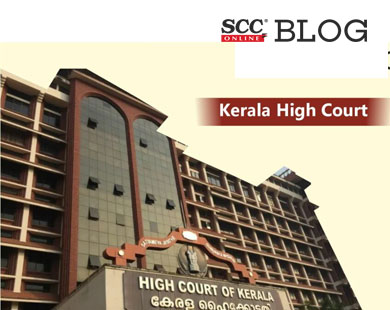Kerala High Court: In a writ appeal arising from a common judgment in three writ petitions, the bench of P.B. Suresh Kumar* and Sophy Thomas, JJ. refused to interfere with the Single Judge’s directions to the Cochin University of Science and Technology (‘University’) for continuation of the petitioners’ engagement as sweeper-cum-cleaner on a daily wage basis.
As per the facts of the matter, petitioners were included in the rank list for appointment to the post of sweeper-cum-cleaner as published by the University on 28-12-2018, who were not appointed since the ranks secured were insufficient for regular appointments for want of vacancies.
Later, the petitioners were engaged as sweeper-cum-cleaner on daily wage basis for some temporary posts in the same University. An order of the University governing engagement on daily wages reveals that a person cannot be engaged on a daily wage basis for a term exceeding 240 days. Steps for disengagement after completion of their term led the petitioners to approach the Court through writ petition claiming permanency, which was disposed of with directions to the University for considering the petitioners’ representation, which was eventually rejected by the University.
Challenging the University order, the petitioners sought declaration of being entitled for engagement on a daily wage basis, until the University makes regular appointments. The University in return denied the existence of any vacancies at that time and that the petitioners were engaged in temporary posts created in exigency of service.
The Single Judge directed the University to continue petitioners’ engagement until the posts are filled up with regular employees, following the principle of last come-first go. Aggrieved by this decision of Single Judge, the University came up with the present Appeal.
The Court agreed with the petitioners’ contention that a temporary employee shall only be replaced by a regular employee and not another temporary employee, as consistently followed by the Supreme Court and various High Courts. The Court noted that the proposition in Barinder Kaur v. Guru Nanak Dev University, 2015 SCC OnLine P&H 12156, that that a temporary employee should not be replaced by another temporary employee, as reiterated in State of Haryana v. Piara Singh, (1992) 4 SCC 118, was not disagreed in State of Karnataka v. Umadevi (3), (2006) 4 SCC 1. Although, the Constitutional bench in this decision held that such employees do not have any right to claim regularisation, and that their engagement ends when their term ends. The Court also observed that this principle cannot be applied when engagement of employees on daily wage basis is governed by statutory rules.
Noting that the petitioners could not secure any other employment, the fact being evident from them approaching the Court for continuance, the Court acknowledged the Single Judge’s directions supported by the discretionary and equitable jurisdiction vested through Article 226 of the Constitution. The Court held that such discretionary orders are not interfered with in the appeal under normal circumstances. Thus, holding the present matter devoid of any merits, the Court dismissed the writ appeals.
[Cochin University of Science and Technology v. Sudheesh Kumar, 2023 SCC OnLine Ker 913, decided on 14-02-2023]
Judgment by: Justice P.B. Suresh Kumar
Advocates who appeared in this case :
For Appellants/Respondents: Advocate S.P. Aravindakshan Pillay;
For Respondents/Petitioners: Advocate Kaleeswaram Raj, Advocate P.C. Sasidharan, Advocate John K. George, Advocate K.S. Arun Kumar.


